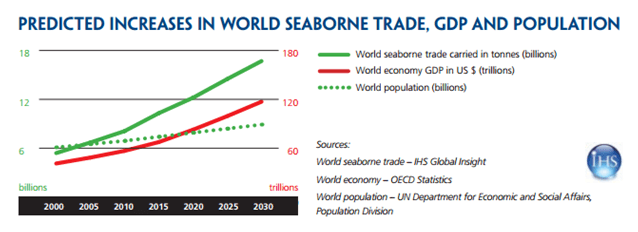Shipping -Is there a need for urgent digitalization?
Shipping industry is one of humanity’s most ancient industries, hauling merchandise across the high seas to power trade and commerce. It has been steadily building prosperity over the past several millennia in lands far and wide. Some 11 billion tons of goods are transported by ship each year. This represents an impressive 1.5 tons per person based on the current global population. Shipping’s capacity to transfer goods and materials from where they are produced to where they will be ultimately consumed underpins modern life.
For an economic region such as the European Union, shipping accounts for 80% of total exports and imports by volume, and some 50% by value. As of 2019, the total value of the annual world shipping trade had reached more than 14 trillion US Dollars. Each year, the shipping industry transports nearly 2 billion tons of crude oil, 1 billion ton of iron ore (the raw material needed to create steel), and 350 million tons of grain. These shipments would not be possible by road, rail or air.
Such raw materials allow countries to create industries, construct cities, house and move populations, and transform resources into refined products for re-export. This ability to add value drives prosperity, and enables countries to scale up. Large volumes of other key products such as chemicals, refined fuels and manufactured goods are also shipped by sea.

(Source: International Chamber of Shipping)
To support world economies, shipping has developed highly sophisticated logistics chains delivering just-in-time parts and goods to manufacturers and consumers. Avocados, for example, are shipped from Chile to arrive in Europe just as they ripen.
Despite witnessing this revolutionary change, most shipping lines continued to remain as mute spectators for the much-needed next revolution even as banking, insurance, travel, education, telecom and other industries eagerly embraced information technology (IT) and digitalisation to grow.
The maritime industry like any other service industry copes with the difficulties of worldwide competition and increasing needs for efficiency. Together with the worries for human safety and environmentally safe operations, the strategic aspects of its service excellence consist of operations and management efficiency which are pinpointed by the results of service efficiency and enabled by technology applications for process efficiency. In the maritime industry, one of the marked impacts of the COVID-19 pandemic is how the regard for technology has changed. The pandemic has augmented pre-existing digitalization and environmental trends. There is now greater appetite and acceptance of digital solutions across the industry. There is extensive consent that digital technologies can generate positive impacts on efficiency at the firm and industry level. At Amigoz Singapore PTE LTD, we are committed to digitalisation of agency operations that can usher in work simplification, greater transparency, and higher efficiency.
We are coordinating with Portzapp technologies, which is a shipping marketplace cum digitalization service provider to make shipping simple and intuitive for each participant in the industry.

